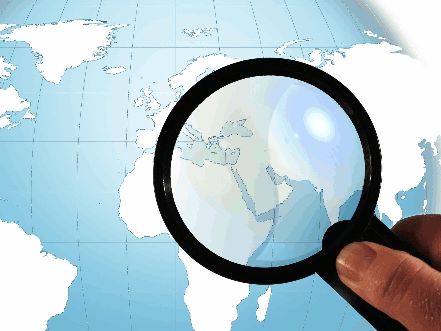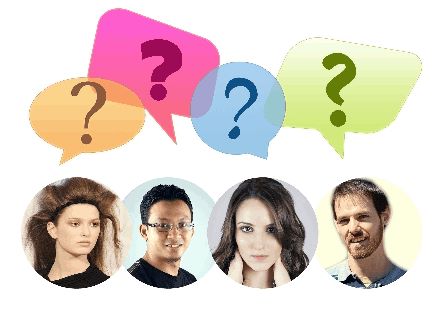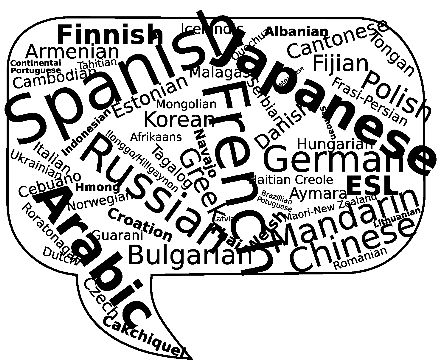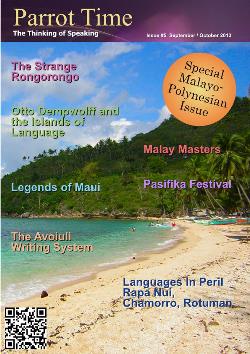
 I can not even begin to count how many times and how many variants of this question I have seen asked. It seems like the automatic question for so many new members in a group to mention. Which language is the easiest to learn? Which language is the hardest? Which language is the best? Which language should I learn? Which language is the easiest to learn for an English speaker? Which language goes best with white wine? Well, that last one is not real, but it represents the silliness of some of these. Silliness? Yes. For the most part, asking these sort of questions is done just to have something to ask, in my view. A person can hardly think that such a question has not already been asked a few dozen times, after all, they are in a group of language learners. And it really does not take a lot of thought to come up with the only true answer: it depends. Let us address these questions on an individual basis so as to clarify my reasoning of them. "Which language is the easiest?" That one is clearly not objective. Comparing the difficulty level of one language to another will always be based upon a person's own experience or knowledge. A person that knows Spanish will find Italian easier to learn but they will probably be more confused by Russian, while a Polish speaker will probably find Russian easier than leaning Italian. Essentially, it is easier to learn a language that is in the same family as the one you already know. By this same logic, comparing which is the hardest language to learn is equally subjective. A sarcastic answer to the question of which is the hardest that I've seen is "Any extinct one" because the available resources for it are probably very limited, and finding another person to converse with in any capacity will be pretty much impossible. Of course, when someone asks this kind of question, the are most likely asking in reference to the globally taught or "popular" languages. No one is really expecting an answer like "Boruca", which is an endangered Chibchan language of Costa Rica. A language affinity is something quite common among language enthusiasts. While most of them can name a language they absolutely hate, they can also likely tell you a language or two that they absolutely love. Some people do make these questions of easiest or hardest a little more specific. They might ask, for example, "Which language is the hardest to learn between Mandarin, Japanese, Thai and Korean?" This can upset some people because only one dialect of Chinese is asked about, although few others exist. As people try to answer this, they will start going into details about the strengths and weaknesses of each, perhaps even trying to convince others about how good their native language is, telling them they should learn it. This gets even more confusing as people give their opinions on languages they have never studied. Indeed, what is the likelihood that someone will have learned all the languages being asked about to be able to give a comprehensive answer. Even that would still be based upon their personal background, which might be completely different from the asker's. It can be argued that some languages are easier for most people, no matter what they speak. There are artificial languages that were created, like Esperanto and Interlingua, with vocabulary and grammar that makes them simpler for speakers of several languages to comprehend. There are also some pidgins and creoles which are simplified versions of two or more combined languages that are rather simple in their constructs. "Which language is best?" This can be a very dangerous question to ask. You might as well be asking which football team is the best. Everyone has their favourites for their own reasons, and they will try to convince you that their choice is the only right one because otherwise, they would not have chosen it. This will also kick off a flurry of attacks on other languages. One person will say that language A is the best, then another person will claim that language B is the best and that language A is only for idiots. A third person will claim that both A and B are not even worth mentioning and that language C is the true language of the gods. Listening to all their reasons for their choices will not do you any good because they will also be subjective, like claiming that one has simpler verb conjugations while another has a better sentence structure. Asking the related question of "Which language is the worst?" will get the insults and fists flying even faster, as everyone's personal prejudice will come pouring out in buckets. It will be worse than tossing a mouse into a cat convention. While it may sound incorrect to think of "language lovers" having specific ones they do not like, it is still common for people to have strong feelings against one just as they have strong feelings for one.  "Which language should I learn?" This one depends on why you are planning to learn it. If you just want to acquire another language and you do not care which one, then you would probably be looking for one that would be easier. On the other hand, you might want a challenge and so would be looking for a difficult one. Maybe you want to do it to help in your job, in which case that would depend on what you do and where you are. What if you want to learn it to impress women (and yes, there are plenty of people who do it for this reason. Impressing men as well). That would require knowledge of the type of person you are doing it for. A more specific answer to this question would be "Which language do you want to learn?" because if the person is not interested in the language, they will find it much harder to apply themselves to learning it. I think this aspect, the interest in the language, and possibly in the culture and country it is related to, is one of the most vital components when selecting a language. It is providing you the incentive to study. If you feel no connection to what you study, then why are you doing it? This is true of most subjects. When people have to decide what to do in their lives, or even which hobbies to start, what they choose is best aided by them wanting to learn or practise it. When one of these questions is asked more specifically, like "Which language is the easiest to learn for an English speaker?", the answer is more obtainable, but still rather obvious. Match language families. But the answer will still be complicated because it depends on the person. For example, English is a Germanic language, so possible answers could be German, Dutch and Swedish. But each of those languages have their own particular quirks that the person might find easy or hard. Furthermore, the person asking this might have a natural affinity for a language that is not even suggested, making that one the easiest for them. Affinity  A language affinity is something quite common among language enthusiasts. While most of them can name a language they absolutely hate, they can also likely tell you a language or two that they absolutely love. They will not be able to fully explain why the strong hatred or love exists because they do not understand it themselves. I first got interested in languages because of the alphabets. Seeing Mayan and Russian and Greek and understanding that there were whole cultures that existed using a completely different writing system fascinated me. When I started poking around languages more, I was intrigued by the sounds of certain ones: the harsh yet smooth tones of Russian, the melody of Irish, the old world charm of Italian. They always sound so lovely to me and I am drawn to them. On the other hand, I hate the sound of French, finding it too snobbish and lazy to my ears. I am talking purely about the languages themselves, not the culture or people; they are not necessarily tied to the language affinity, although they can be. I love the Italian culture and am interested in both Russian and Ireland, but I have no desire to see France while some of my favourite films are French. A person may also enjoy a language for other reasons while not having a true affinity for it. Papiamento is a language I find interesting and fun, so I have a fondness for it, but I am not drawn to it in the same way as the others. Meanwhile, there are languages that I have no feelings towards at all, positively or negatively. It is not something that can be easily defined or understood, but I am sure you know what I am talking about if you have spent any amount of time exploring other languages (and I assume you have, or else you would not even be interested in reading this!). |
| Which Language Is...? | ||||
| Writer: | Erik Zidowecki | |||
| Images: | ||||
| ||||
All images are Copyright - CC BY-SA (Creative Commons Share Alike) by their respective owners, except for Petey, which is Public Domain (PD) or unless otherwise noted.
comments powered by Disqus
















